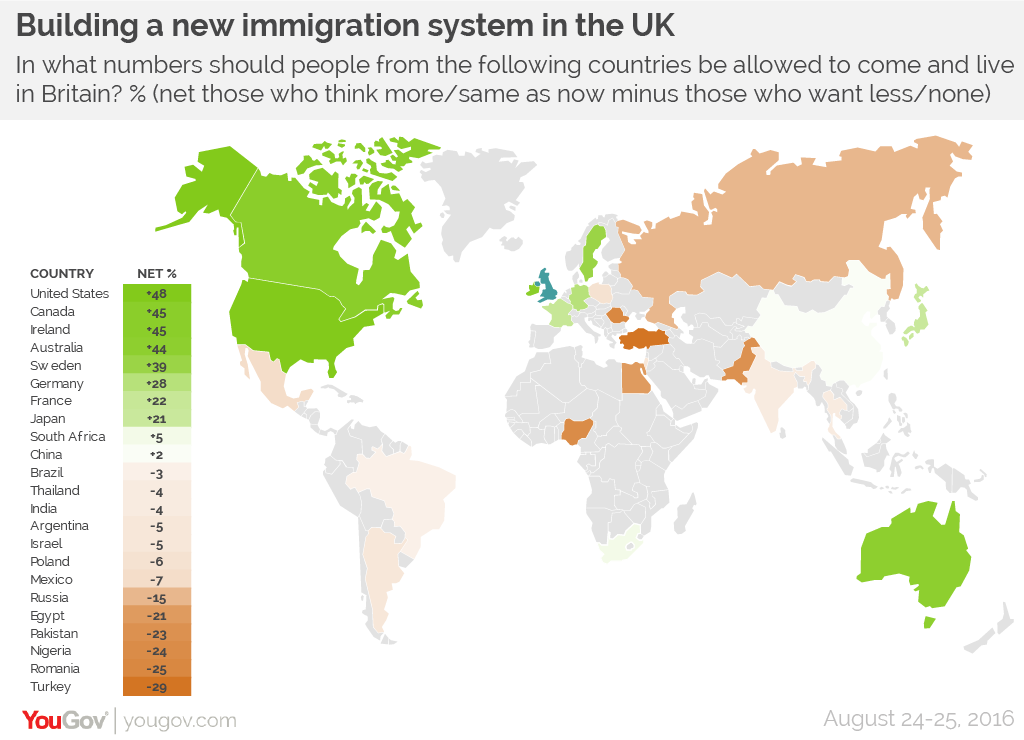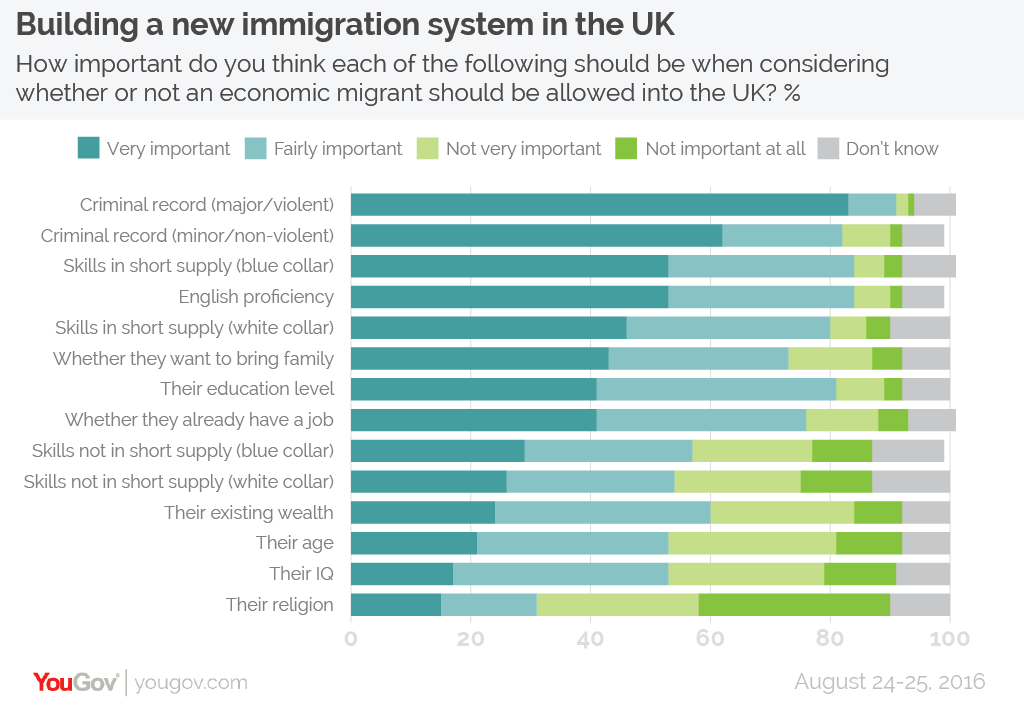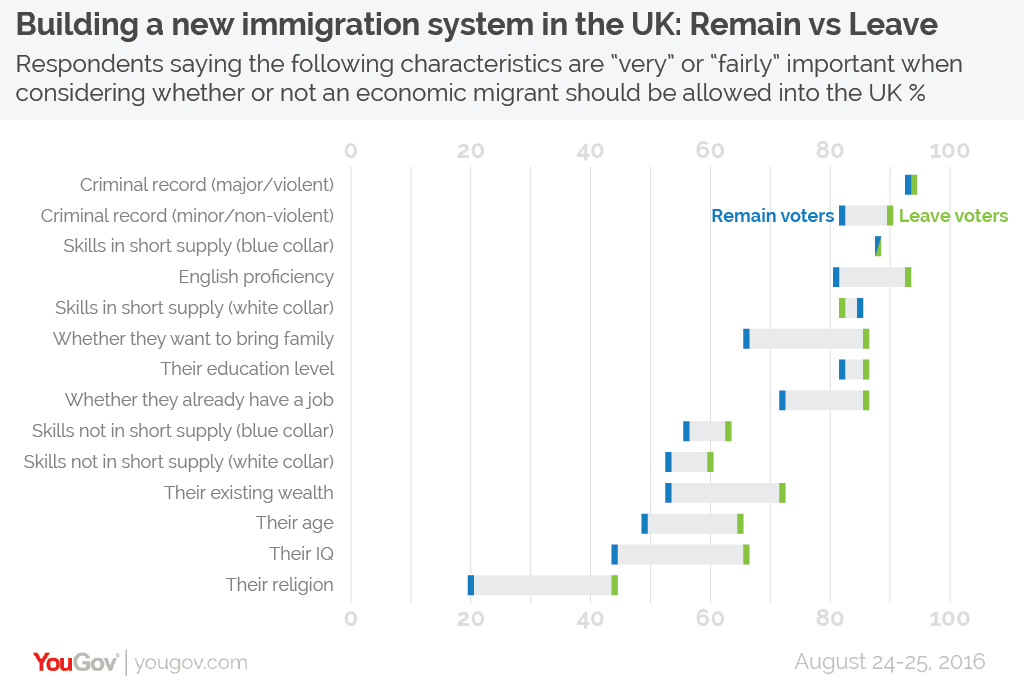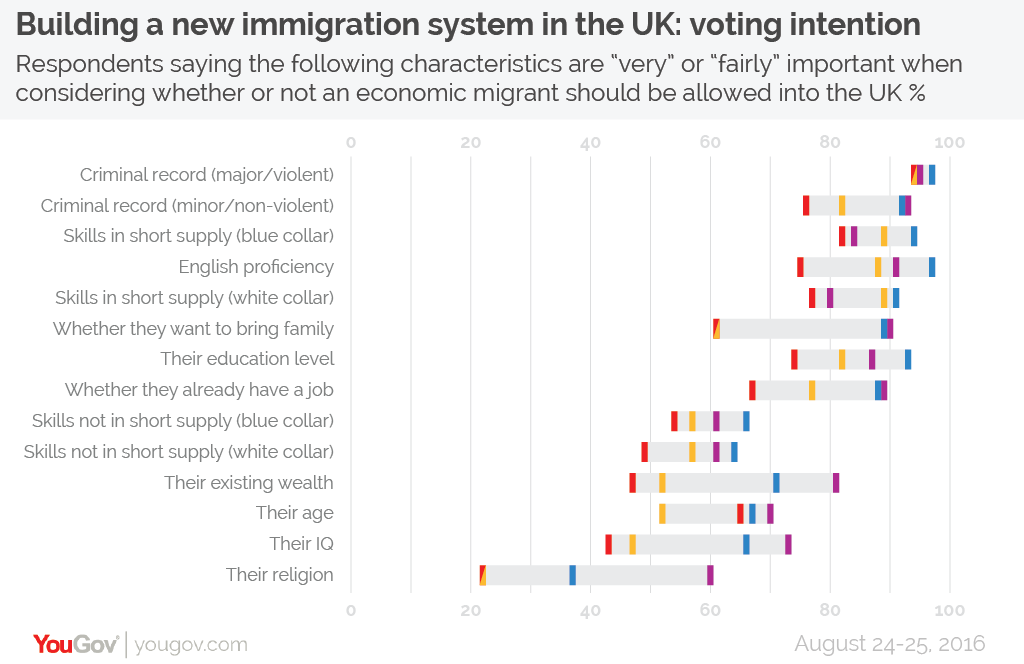This section allows you to view all posts made by this member. Note that you can only see posts made in areas you currently have access to.
Messages - More Than Mortal
Pages: 1 ... 333435 3637 ... 502
1022
« on: August 30, 2016, 07:10:12 AM »
1023
« on: August 30, 2016, 05:48:37 AM »
1024
« on: August 30, 2016, 05:34:33 AM »
The biggest problem you'll have is finding a server with enough spaces.
1025
« on: August 30, 2016, 05:33:01 AM »
They have socialist policies. So does America then, since they have police, national highways, the most progressive income tax in the world and the highest corporation tax rates in the developed world. Just because it's not going by the textbook definition, doesn't mean it's not some form of it Except it does. Northern European and the German economies are still defined by the interactions and transactions of private individuals and companies. The means of production are privately owned. Having a generous welfare system doesn't make you socialist.
1026
« on: August 30, 2016, 05:30:15 AM »
capitalist socialism
Oxymoron. The Nordic model of capitalism, or a co-ordinated market, is not socialism. But, to address your other point, there's no real reason to think it could or should be introduced properly to the US or the UK: Because of their more limited inequality and more comprehensive social welfare systems, many perceive average welfare to be higher in Scandinavian societies than in the United States. Why then does the United States not adopt Scandinavian-style institutions? More generally, in an interdependent world, would we expect all countries to adopt the same institutions? To provide theoretical answers to this question, we develop a simple model of economic growth in a world in which all countries benefit and potentially contribute to advances in the world technology frontier. A greater gap of incomes between successful and unsuccessful entrepreneurs (thus greater inequality) increases entrepreneurial effort and hence a country's contribution to the world technology frontier. We show that, under plausible assumptions, the world equilibrium is asymmetric: some countries will opt for a type of "cutthroat capitalism" that generates greater inequality and more innovation and will become the technology leaders, while others will free- ride on the cutthroat incentives of the leaders and choose a more "cuddly" form of capitalism. Paradoxically, those with cuddly reward structures, though poorer, may have higher welfare than cutthroat capitalists; but in the world equilibrium, it is not a best response for the cutthroat capitalists to switch to a more cuddly form of capitalism. We also show that domestic constraints from social democratic parties or unions may be beneficial for a country because they prevent cutthroat capitalism domestically, instead inducing other countries to play this role.
1027
« on: August 29, 2016, 05:04:54 PM »
1028
« on: August 29, 2016, 05:02:21 PM »
Wouldn't socialism be the more logical outcome?
Uh. . . On what basis? How do you go from "Common aspects of free-market thought don't work as well" to "socialise everything"?
1029
« on: August 29, 2016, 02:33:01 PM »
What're your thoughts on the popular liberal idea that communism is the eventual (and soon) state the economy will reach post-capitalism? I think it's basically true (though not near). If we survive long enough, at some point we'll develop a production method that abolishes scarcity.
1030
« on: August 29, 2016, 11:58:47 AM »
I had to reload a save
People like you are literally the scum of strategy games.
1031
« on: August 29, 2016, 08:29:38 AM »
but the content updates are improving a lot of it
That's to be expected from such a large game, tbf. I came to EUIV pretty late, and updates are still being churned out. I've watched part of a few LPs, and the one thing I do hope they update is ship skins. They aren't really that many, by the looks of it.
1032
« on: August 29, 2016, 08:08:14 AM »
-The way WW1 ended. If Ludendorff made peace sooner then Germany would have kept the lands which they took which would have resulted in them not being fucked over. Chances are if Germany didn't get fucked over in tat train then WW2 wouldn't have happened, at least a German started one.
Britain should've stayed out of the war and let Germany win.
1033
« on: August 29, 2016, 08:07:05 AM »
Is there a leading alternative that isn't just another form of partial capitalism seen in most countries?
Nope. The argument is more than policy tweaks and directional changes are appropriate given the changing nature of developed economies, rather than some systemic change. I'd be surprised if the author was even advocating a change away from a liberal market to a co-ordinated market.
1034
« on: August 29, 2016, 08:05:44 AM »
Is it worth getting?
I've got like 40 hours on EUIV, which I thought was pretty good. Does Stellaris actually stack up?
1035
« on: August 29, 2016, 08:04:26 AM »
What a time to be into law. Regulatory expansion, here I come.
I once was talking to two of my friends who do law. The one said that lawyers will always be around because "we've built caveats and loopholes into the legal system so as to make ourselves permanently necessary". Fuck lawyers.
1036
« on: August 29, 2016, 08:03:06 AM »
meme magic is real
1037
« on: August 29, 2016, 05:24:26 AM »
Noah SmithI recently wrote a Bloomberg View post about political-economic ideologies, and how society is quicker to change than individual human beings. The upshot was that free-market ideology seems - to many Americans, and also incidentally to me - to have mostly hit a wall in terms of its ability to improve our lives, and so society will inevitably embrace an alternative, despite the protests of diehard free-marketers.
Bryan Caplan is flabbergasted at the notion that free-market ideology (aka "neoliberalism") has actually been tried in the U.S.:
The claim that "free-market dogma" is the "reigning economic policy" of the United States or any major country seems so absurd, so contrary to big blatant facts (like government spending as a share of GDP, for starters), that I'm dumb-founded.
This is pretty much exactly the attitude I described in my post! "Of course neoliberalism hasn't failed; we just never really tried it."
David Henderson has a longer and more measured response. He challenges the idea that free-market ideology has demonstrated any failures at all.
Now I could simply make a weak claim - i.e., that free-market ideology seems to have hit a wall, and that in the end, that general perception is much more important than what I personally think. But instead, I'll make the much stronger claim - I'll defend the idea that free-market ideology has, in fact, really hit a wall in terms of its effectiveness.
Exhibit A: Tax cuts. Tax cuts, one of free-marketers' flagship policies, appear to have given our economy a boost in the 1960s, and a smaller boost in the 1980s. But any economic boost from the Bush tax cuts of 2001 and 2003 was so small as to be invisible to all but (possibly) the most careful econometricians. Notably, a number of attempts to encourage savings - capital gains tax cuts, estate tax cuts, and the like - have not halted the steady decline in personal savings rates.
Exhibit B: Financial deregulation and light-touch regulation. It seems clear to me that under-regulation of derivatives markets and mortgage lending played a big role in the financial crisis. The counter-narrative, that government intervention caused the crisis, has never held much water, and has been debunked by many papers. This was a private-sector blowup.
Exhibit C: Light-touch regulation of monopoly. The evidence is mounting that industrial concentration is an increasing problem for the U.S. economy. Some of this might be due to intellectual property, but much is simply due to naturally increasing returns to scale.
Exhibit D: The China shock. While most trade booms seem to lead to widely shared gains, the China trade boom in the 2000s - which free marketers consistently championed and hailed - probably did not. High transaction costs (retraining costs, moving costs, and others) lead to a very large number of American workers being deeply and permanently hurt by the shock, as evidenced by recent work by Autor, Dorn, and Hanson.
Exhibit E: Faux-privatization. True privatization is when the government halts a nationalized industry and auctions off its assets. Faux-privatization is when the government outsources an activity to contractors, often without even competitive bidding. Faux-privatization has been a notable bust in the prison industry, and school voucher programs have also been extremely underwhelming. Charter schools have fared a bit better, but even there the gains have been modest at best.
Exhibit F: Welfare reform. Clinton's welfare reform saved the taxpayer very little money, and appears to have had little if any effect on poverty in the U.S.
Exhibit G: Research funding cuts. The impact of these is hard to measure, but cuts in government funding of research appear to have saved the taxpayer very little money, while dramatically increasing the time that scientists have to devote to writing grant proposals, and increasing risk aversion in scientists' choice of research topics.
Exhibit H: Health care. The U.S. health care system is a hybrid private-public system, but includes a proportionally much larger private component than any other developed nation's system. Free-marketers have fought doggedly to prevent the government from playing a larger role. Our hybrid system delivers basically the same results as every other developed country's system, at about twice the cost. Private health care cost growth has been much faster than cost growth for Medicare and other government-provided programs, indicating that much of our excess cost has been due to the private component of our system, not the public part.
I could go on, but these are the big ones I can think of. In some of these cases, free-market policies seem to have produced some gains in the late 20th century, but by the 21st century all appeared to be either having no effect, or actively harming the economy.
No, this is nowhere near as big a failure as that of communism (though in some ways, notably health care and financial deregulation, we've done worse than the somewhat-socialist nations of Europe). The analogy with communism was a way of illustrating a certain mindset, not to draw an equivalence between the results of neoliberalism and communism.
Also, I personally think there is still scope for many neoliberal policies to improve our economy. Reduced occupational licensing, urban land-use deregulation, simplification of the tax code, and various other kinds of deregulation all seem to show promise. If free-market policies have hit a wall, it's a porous wall - in real life, nothing is as cut-and-dry as in our ideological debates.
But overall, I think the last decade and a half have shown clearly diminishing returns, and sometimes negative returns, from neoliberal reforms. So our society is right to be looking for alternative policy packages. Though that doesn't necessarily mean we'll choose a good alternative - I think Sanders-style socialism would probably be a mistake.
1038
« on: August 29, 2016, 03:32:39 AM »
The Abolition of Prussia.
Mate, fuck off. The Second Reich was the greatest civilisation the Earth has ever seen. The greatest crime of the British Empire was to join the war against the Germans.
1039
« on: August 29, 2016, 03:30:44 AM »
Abiogenesis
Wrong. The Big Bang.
1040
« on: August 28, 2016, 05:09:31 PM »
kys
1041
« on: August 28, 2016, 10:54:51 AM »
You're essentially turning the pigment of your skin into a dick measuring contest. It's childish.
Plus the blacks would win.
1042
« on: August 28, 2016, 09:43:30 AM »
LOL
Britain is a shithole with no opportunities. Who the hell would go through all that trouble.
ur mum
1043
« on: August 28, 2016, 09:39:30 AM »
The world would be a lot better if we'd just killed all the Aboriginals and Native Americans.
1044
« on: August 28, 2016, 09:38:18 AM »
while people like me are actually keeping the internet afloat
It's a lot easier to use adblock when you realise companies are going to just block access to their sites before charging people.
1045
« on: August 28, 2016, 09:35:52 AM »
I'm going to relish voting for her. Fuck GJ.
Isn't Michigan a swing state? I'm going to hold you personally responsible when Trump wins.
1046
« on: August 28, 2016, 07:20:50 AM »
So basically it's totally calm that we colonised Australia.
1047
« on: August 28, 2016, 07:20:12 AM »
No, I don't know why the image is quartered.
I guess we have a second data point for the hypothesis that even old women who are running for president don't know how to use the internet.
1048
« on: August 28, 2016, 07:18:23 AM »
No, really.The people who brought you this dank meme that made me giggle are now on Twitter. Follow @DankJillMemes!  This election cycle is just too much.
1049
« on: August 28, 2016, 06:48:11 AM »
From YouGov. Now that Britain has voted to leave the EU, the government is going to have to develop a new immigration policy. For many – including new Prime Minister Theresa May – the message of the referendum result was that immigration levels will have to come down drastically.
A new YouGov survey confirms the extent of this message, showing that an overwhelming majority of the public – 70% of people – think that immigration into Britain has been too high over the last ten years. Close to half (44%) say it has been "much too high". The government is going to face a backlash if it is not able to design an immigration system that is popular with the public.
However, the frank preferences on what kind of immigrants the public would like to see more of or less of will be difficult to translate into government policy.
There is a strong desire for a reduction in migrants from Eastern Europe, Africa, the Middle East and South Asia. At least one in five people say that the UK should not admit a single migrant from Turkey, Romania, Nigeria, Egypt or Pakistan.
The hostility to certain countries reflects both cultural and economic concerns. Of the countries listed, Britons are most happy with migration from advanced economies, particularly those with English-speaking populations. And when looking at what factors should determine whether or not a migrant is allowed to enter the UK, the results show a public that is keen to ensure their jobs and safety are not disrupted.
Criminality is the top of the public’s list of concerns. More than eight in ten (83%) of people said that whether a migrant had a record of violent crimes was “very important”, as did 62% for minor or non-violent crimes, making them by far the two highest responses in this category (a further 8% and 20% respectively said these factors were “fairly important”).
The vast majority of people think that whether a person has skills in short supply is important (84% for blue collar jobs and 80% for white collar jobs), but this drops to just over half for people with skills that are not in short supply (57% for blue collar jobs and 54% for white collar jobs). Three quarters (76%) of people are also keen to ensure that a migrant already has a job lined up.
English proficiency was important for 84% of people, whilst a migrant’s education level was important to 81% of people. It is clear that the public are keen to scrutinise most areas of a migrant’s life – majorities of people thought it was important to factor in whether a migrant wanted to bring their family (73%), their existing wealth (60%), their age (53%) and even their IQ (53%). In fact, the only area that the majority of people didn’t think was important was a migrant’s religion (31%).
Unsurprisingly, Remain voters take a much more laissez-faire approach to what type of migrants the UK admits than their Leave-voting counterparts. There are some areas of consensus though – around skills and education. This could be a potential area of emphasis for the government, allowing them to mimic the much-cited "Australian points system".
There are wide variations between voters of different parties on whether certain migrant characteristics are important as to whether they should be allowed in the UK. Whilst people intending to vote UKIP and Conservatives are more likely to consider most migrant characteristics to be important, UKIP voters are comparatively less concerned about the migrants' skills, but much more concerned about their religion. This could reflect that UKIP voters are more animated by cultural, rather than economic, considerations than Conservatives.
Intriguingly, for a party that was developed to represent the working class – a working class that voted Leave by 65% and which thinks immigration has been much too high by 75% – people who are currently intending to vote Labour are the least likely to think any migrant characteristic is important.
The research underlines the challenge facing the government, as they seek to chart a line between the stark and politically challenging views of most voters on immigration, and the need to retain good trading and diplomatic relations with the developing world. So British people want: - from culturally and economically similar countries
- who speak English
- who have in demand skills
- who have a job lined up before entry
- who have a clean criminal record
1050
« on: August 28, 2016, 03:48:06 AM »
OP is bipolar.
Pages: 1 ... 333435 3637 ... 502
|





